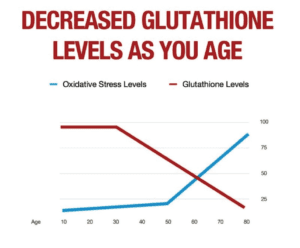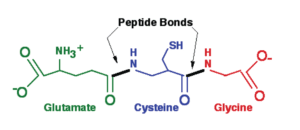The Importance of Glutathione and Lactobacillus fermentum ME-3:
A Glutathione-Producing Probiotic Bacteria
By Ross Pelton, RPh, PhD, CCN
Scientific Director, Essential Formulas
Glutathione is one of the most amazing molecules in the human body, yet many people are not aware of it because it is not a supplement that can be effectively taken orally. Glutathione is made in every cell throughout the body and it is called the Master Antioxidant and also the Master Detox Agent.
Glutathione’s “job” is to protect all the components inside every cell in your body against free radical damage. In fact, glutathione protects more of your body than all the other antioxidants combined. In addition to glutathione being an antioxidant, it also recycles or regenerates other oxidized or “used up” antioxidants like vitamin C, vitamin E and coenzyme Q10 back to their active form.
Glutathione is a critical participant in virtually all the body’s detoxification processes. In the past 50 years or so, exposure to environmental toxins has increased exponentially. As a result, people’s glutathione levels have been increasingly depleted. Depleted glutathione levels results in greater body burden of toxins, increased free radical damage and accelerated aging. Thus, keeping glutathione at optimal levels is critical for healthy aging. On average, it has been estimated that after age 20, people’s ability to synthesize glutathione declines by about 1% per year. This could be a major contributing factor to why health problems accelerate as people age.

Structurally, glutathione is called a tripeptide because it consists of 3 amino acids, glutamate, cysteine and glycine. Glutathione is not effective when taken orally because it gets broken down before it can be absorbed.

Many things people are commonly exposed to deplete glutathione levels such as: alcohol, artificial sweeteners, tobacco smoke, acetaminophen/Tylenol, toxic metals like mercury, artificial food dyes, agricultural pesticides and herbicides and also, many common household chemicals. Also, the diet of many Americans is nutritionally deficient, which contributes to low glutathione levels.
Every system in the body is influenced by glutathione levels, especially the immune system, the nervous system, the gastrointestinal system, and the lungs and liver.
Several nutritional supplements have been shown to be somewhat helpful at boosting glutathione levels such as N-acetyl cysteine, selenium and lipoic acid as well as the herb milk thistle. Also, some companies are now marketing oral glutathione supplements in liposomal delivery forms. Liposomal delivery does result in better absorption, but the glutathione still gets oxidized relatively quickly so it does not stay active very long. Some physicians administer IV glutathione to patients but again, the glutathione gets oxidized within a day or two. Most people cannot afford the time or the money to schedule appointment at a doctor’s office every 2 or 3 days for IV glutathione treatments.
Revolutionary Breakthrough: A unique strain of probiotic bacteria named Lactobacillus fermentum ME-3 (often called ME-3) has been found to synthesize glutathione. Lactobacillus fermentum ME-3 was initially isolated from the intestinal tract of a healthy 1-year old child in 1995. When ME-3 was tested, researchers discovered that it had remarkably high antioxidant activity. Over the past 20 years, scientists have been studying ME-3 trying to learn how and why it generates its antioxidant effects.
A Complete Glutathione System: Scientists have discovered that ME-3 boosts glutathione levels via three independent mechanisms. The bacteria synthesize glutathione, it can extract it from the surrounding environment and it also regenerates oxidized or “used up” glutathione back to its reduced or active state. To date, ME-3 is the only organism or substance known that is able to boost glutathione levels by three independent mechanism simultaneously. Consequently, scientists are referring to Lactobacillus fermentum ME-3 as a Complete Glutathione System.;
Human Clinical Trials: Results from human clinical trials conducted with Lactobacillus fermentum ME-3 report the following:
- 16% reduction in LDL cholesterol
- 20% reduction in 8-isoprostanes
- 49% increase in reduced glutathione
- 26% increase in total antioxidant activity

Additional Benefits: In addition to producing glutathione, Lactobacillus fermentum ME-3 has several other unique health-promoting benefits.
-
- ME-3 produces manganese superoxide dismutase (Mn-SOD) which is another very important antioxidant enzyme. ME-3’s ability to increase levels of Mn-SOD and glutathione provide substantial increased protection against free radical damage.
Summary: One of the most important things an individual can do to promote and maintain good health is to boost his or her glutathione levels. Until recently there wasn’t an effective way to accomplish this. However, now people can take products that contain the probiotic bacteria Lactobacillus fermentum ME-3 and significant boost in glutathione levels. The net result is better detoxification, increased protection against free radicals and a healthier aging process.
For more information about products that contain Lactobacillus fermentum ME-3, go to www.EssentialFormulas.com and click on Reg’Activ.




